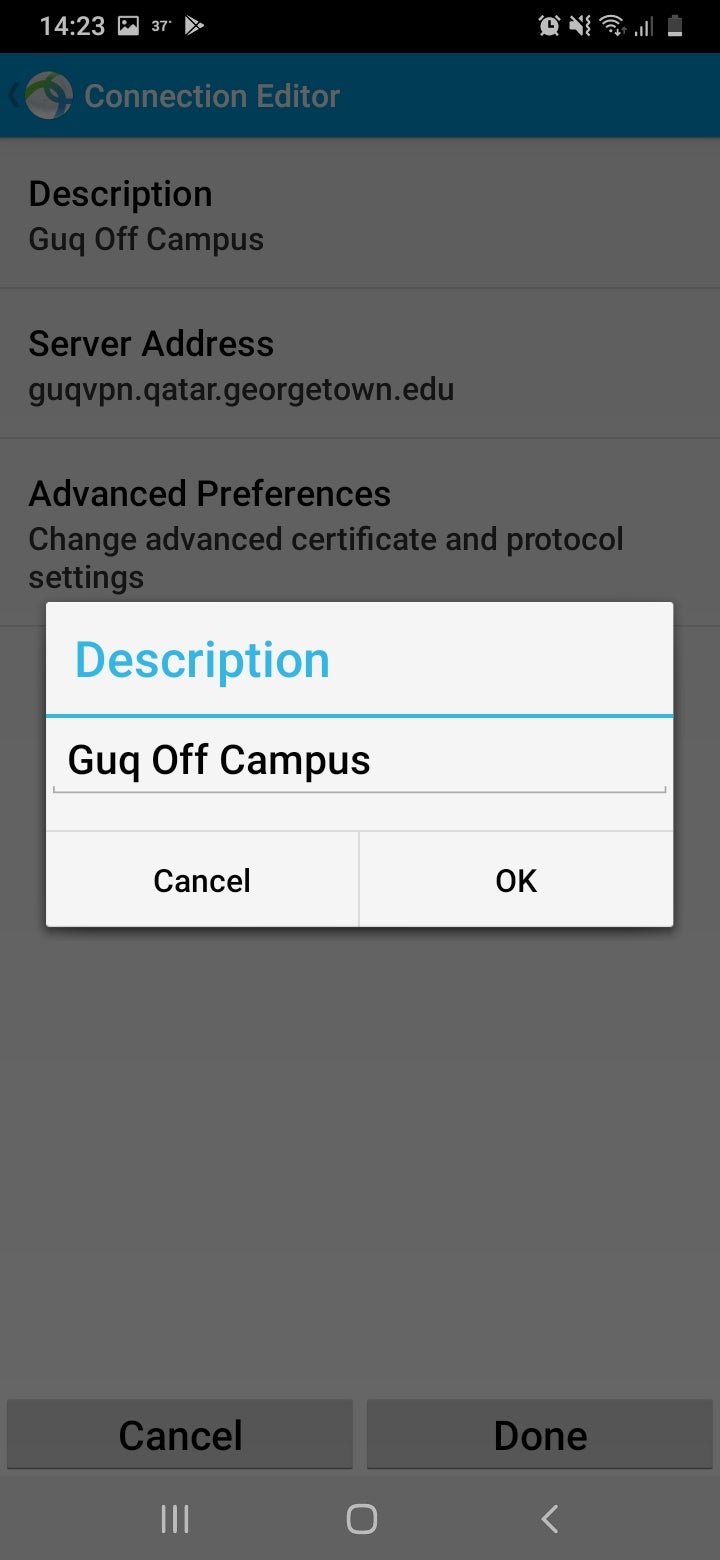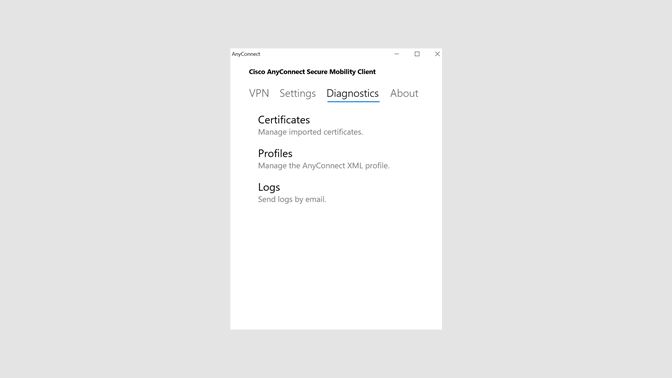AnyConnect client licenses allow the use of the AnyConnect desktop clients as well as any of the AnyConnect mobile clients that are available. To try out AnyConnect on mobile devices: Firmware versions 1.0.3.15 and later As of March 2019, server licenses using AnyConnect for RV34x fimware version 1.0.3.15 and later are no longer required. Jadyr Pavao and I have the same issue. Update: It looks like AnyConnect and the nacl-development-environment plugin may have a conflict. Following Pete's recommendation, I removed the nacl-development-environment plugin, removed and reinstalled AnyConnect, and vpn is working again. Install Cisco AnyConnect Connect your Android device to the Internet. Go to the Google Play store.
Rutgers VPN utilizes the Cisco AnyConnect Secure Mobility Application to provide secure remote access functionality for end users running Microsoft Windows, macOS, or Linux. As of July 1, 2019, the Cisco client is the only officially supported method for VPN connections at the University. Service activation is available at
NOTE: You must be enrolled in Duo 2FA (NetID+) to register for VPN
NetID+ 2-factor authentication information:
Play Store App
Installation Instructions
You should install the AnyConnect app from the Google Play Store, as you would any other android app.
Using the VPN
Once the installation is complete, the “Cisco Anyconnect” will be in your launcher’s app tray.
It may also already be on your home screen, depending on your settings. The icon will look like this:
Either launch AnyConnect from your home screen, or tap the icon from your app tray. You will be presented with the connection screen, which should look like this:
Tap “Connections”
Tap Add New VPN Connection
Tap Description to enter a description if you like. This can be named whatever you want or can be left blank.
Tap Server Address
Enter the address of the VPN, vpn.rutgers.edu and tap “OK”
Tap “Done”
You will now see your newly created connection on the main screen of the app, and the app in a disconnected state. Tap the slider bar to connect.
You must be enrolled in Duo 2FA (NetID+)
NetID+ 2-factor authentication information:
You will see fields for Username, Password, and Duo Action/Second Password (see below). The options are detailed in the dialogue box.
The Username will be your NetID, the password field will be your NetID Password and for 2FA you have 4 options to enter in the Second Password field:
- Enter a 6 digit Duo Passcode. These are generated either by a Hard Token, showing the passcode in the Duo Mobile App, or from a previous “SMS” request. Simply type in the 6 numbers and hit OK.
- Type the word “push”. This will send a push notification to the primary device you have enrolled with Duo through NetID+ with the option to Accept or Deny.
- Type the word “phone”. You will receive a phone call to the primary device you have enrolled with Duo through NetID+ with touch tone options to Accept or Deny.
- Type the word “sms”. You will receive a text message to the primary device you have enrolled with Duo through NetID+ containing passcodes you can use to logon.
You may also get a prompt like this

Tap OK to continue and connect.
You should now be connected to the VPN. You will see the AnyConnect VPN list itself as “connected” as well as the toggle button showing “On”.
Anyconnect Play Store Free
The android system will also show a notification confirming you are connected.
When you are finished with University business, always remember to end the VPN session!

Ending a VPN Session

To end your session, open the app again to toggle the connection to “off”. Alternatively, you can tap the Android System notification to disconnect as well.

If you have any questions, comments, or issues please contact SOC@oit.rutgers.edu or submit a request to the group using our online form, https://oit.rutgers.edu/soc
Assistance
Anyconnect Play Store Login
If you’re having trouble connecting, please contact the helpdesk via their website https://it.rutgers.edu/help-support/ or by phone833-OIT-HELP
